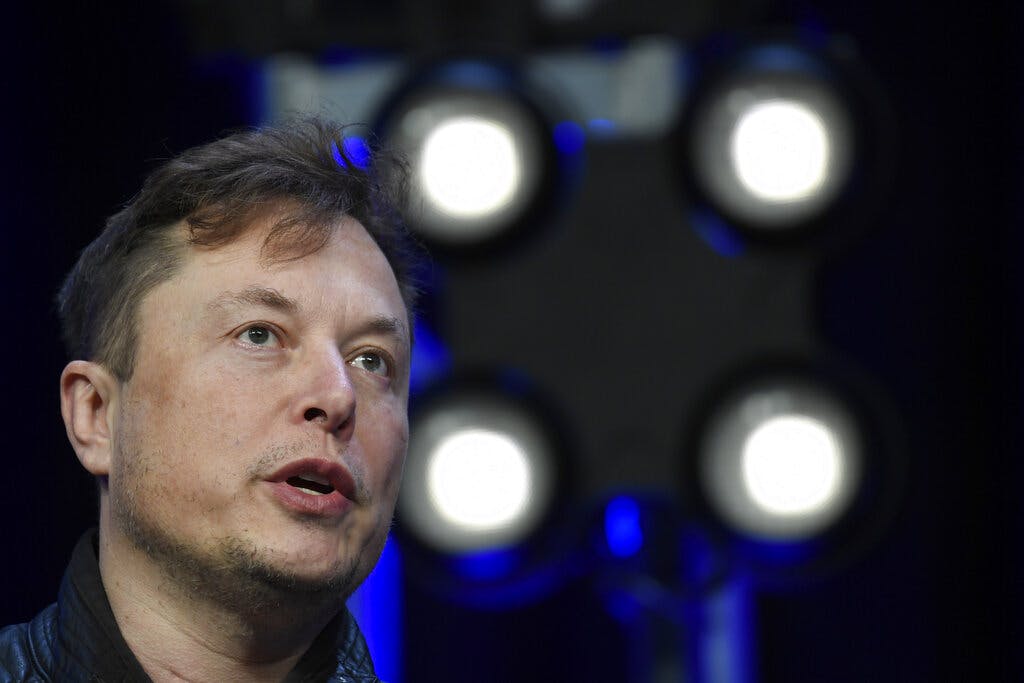Elon Musk and Misinformation About Misinformation
President Biden and Secretary Clinton get the assault on Paul Pelosi completely backward.

After the home invasion and assault of Speaker Pelosi’s husband in San Francisco, Elon Musk proved he’s a lot like the rest of us. The new owner of Twitter read something online and tweeted it out before checking.
What Mr. Musk tweeted is a link to an article from a sketchy website that alleged the man who assaulted Paul Pelosi was a gay escort. The story was a dud, and Mr. Musk soon deleted the tweet.
That should have been the end of it. Yet, the errant tweet has led many journalists and progressive activists to worry that the new owner of Twitter is contributing to the scourge of misinformation.
A vice president of the Anti-Defamation League and former Facebook executive, Yael Eisenstat, lamented that Mr. Musk “traffics in conspiracy theories days after claiming to advertisers that he’s going to be a responsible leader.”
An NBC reporter who specializes in urging social media platforms to take down accounts pushing wrong think, Ben Collins, warned that a lie about Mr. Pelosi was trending on Twitter because of Mr. Musk’s tweet.
The research director of the Technology and Social Change Research Project at Harvard University’s Shorenstein Center, Joan Donovan, told the Washington Post that Mr. Musk owning Twitter was akin to “putting the fox in charge of the henhouse when it comes to political misinformation.”
Really? The recent efforts from elites to censor misinformation online is itself a kind of misinformation. For too often what has been derided in recent years as misinformation or disinformation has later turned out to be real news.
Consider the campaign against the New York Post’s accurate reporting before the 2020 election about Hunter Biden’s emails from a laptop he left at a computer repair store in Delaware. Earlier this year the Washington Post and the New York Times acknowledged, belatedly, the emails were authentic.
When the laptop story broke, the mainstream press and social media companies took extraordinary steps to protect Americans from journalism that was falsely alleged to be Russian disinformation. Twitter temporarily barred users from sharing the New York Post story. Facebook throttled the story’s distribution on its network.
This brings things back to the latest misinformation outrage. Mr. Musk was posting a response to a tweet from Secretary Clinton that said the assault was the result of Republicans who “regularly spread hate and deranged conspiracy theories.”
President Biden made a similar connection. In remarks on Friday evening he noted that the assailant asked, “Where’s Nancy?” during the skirmish. “The same chant was used by this guy they have in custody that was used on January 6 in the attacks on the U.S. Capitol,” the president said.
The problem is that the more we learn about the attacker, a 42-year-old drug addict named David DePape, the more it seems that he suffered a break from reality. He was not a partisan zealot. He was a dangerous psychotic.
It’s true that he posted to a blog about QAnon, the online conspiracy theory that some supporters of a former president, Donald Trump, have embraced. He also claimed that faeries spoke to him, sometimes appearing as a bird.
An author and expert on drug addiction, Michael Shellenberger, reported on his substack that Mr. DePape lived in Berkeley at the home of a nudist that featured an LGBTQ flag and a “Black Lives Matter” sign in the yard.
Mr. Shellenberger argues that Mr. DePape’s condition is best explained by his drug addiction. “David DePape is not a microcosm of the political psychosis gripping America in general,” he wrote. “Rather, he’s a microcosm of the drug-induced psychosis gripping the West Coast in particular.”
In that light, Mrs. Clinton and Mr. Biden have engaged in their own kind of misinformation. Blaming the deeds of a psychotic vagrant on Republican rhetoric is a deceptive way of building public support for the censorship of one’s political opposition.
A better approach is to trust the majority of Americans to think for themselves and not to give the sociopaths among us the power to censor our political discourse.

